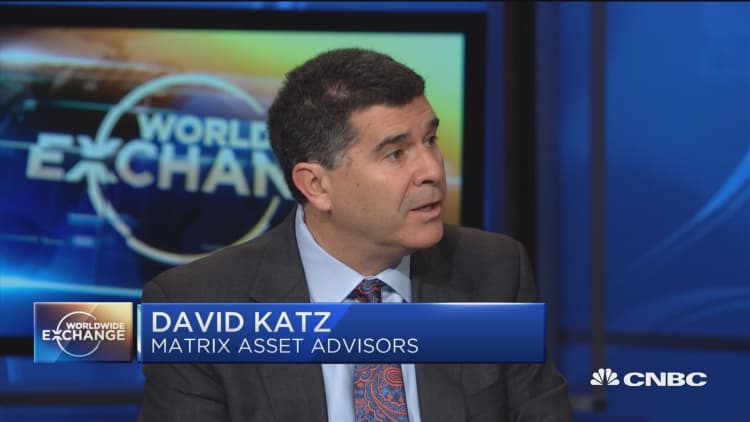It appeared to be a painful start to the week for the stock market, with the Dow Jones Industrial Average plummeting more than 470 points at the open Monday before rebounding and then tumbling again by as much as 350 points on Tuesday.
Yet Carolyn McClanahan, a certified financial planner, in Jacksonville, Florida, had received no calls from worried clients this week.
"There's always something that's troubling the stock market," McClanahan said.
The issue this week? Fear of a trade war erupting after Trump said in a Sunday afternoon Twitter post that the current 10% tariffs on $200 billion worth of Chinese goods will rise to 25% on Friday. He also threatened to impose 25% levies on an additional $325 billion of Chinese goods "shortly."
"It's the least worry our clients have," said McClanahan, founder of Life Planning Partners. (The Dow has since erased more than half its losses and was down about 200 points by early afternoon).
McClanahan attributes her and her clients calm to their previous discussions about risk.
"How much risk do you need and want to take?" McClanahan said she asks them annually. "We focus on what the client's life goals are.
"You can't control the market," she added.
Investors who make decisions in response to the president's volatility should brace for whiplash, said James W. Paulsen, chief investment strategist of The Leuthold Group, an investment research firm in Minneapolis.
"This is a man-made crisis that was created by a Trump trade tweet, and it can be ended by a Trump trade tweet," he said.
Concerns over whether someone's stocks are over- or undervalued are often needless, said Mark Hebner, president of Index Fund Advisors, which manages $3.9 billion.
"With roughly 10 million buyers and sellers every day, the market is setting the fair price all the time so going forward they're positioned to get the fair return," Hebner said.
That reality, of course, is why more people are now investing in index funds today rather than picking individual stocks. Recent research from Morningstar found that in 2018 just 38% of active U.S. stock funds fared better than their passive peer funds.
"This trading game doesn't help investors," Hebner said. (McClanahan said her firm transitioned to only passive funds in 2009, after the active funds did worse in the financial crisis.)
Advisors should remind any jittery clients that "news is random," and that "buyers and sellers react to that news so that the new price positions the buyer to get a fair return," Hebner said.

He provided an easy-to-imagine example: If you wanted to make sure you were selling your house at a fair price, you might call an appraiser who would look at three similar houses to see what they sold for.
"We're looking at three houses that sold to determine whether your house sells properly," Hebner said. "There are 10 billion shares of securities traded every day. You don't think they come to a fair price? Give me a break."
Advisors should point their clients to the important indicators beyond grabby headlines, Paulsen said, including muted inflation, low interest rates, and the recent positive earnings and productivity reports.
"The odds of that winning still seem bigger than the odds of a 3 a.m. Tweet storm taking us down," he said.
Still, advisors can use market dips to help their clients manage their expectations, Paulsen said.
"Even if you're bullish like I am, I don't think you're max-bullish anyway, just because of the fact that we're going to have a record-setting long recovery, and we're at full employment," he said.
More from FA Playbook:
Advisors tackle the complexities of Social Security
Most advisors lack a succession plan
America is in a financial literacy crisis





